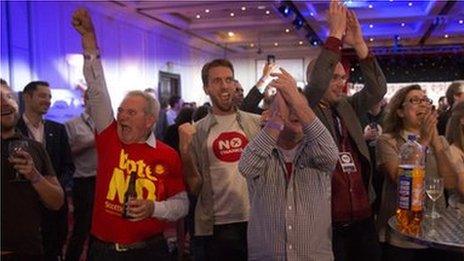Andy Murray's independence of mind to be applauded
- Published

Andy Murray had kept his feelings about independence out of the public arena until polling day.
To have been in the sports-writing game in the 1960s and 1970s must have been a joy, an era when sportswriters had access to compelling figures whose lives didn't begin and end with the whitewash on the grass or the ropes in the ring.
These sports people had lived. They had things to say about the way of the world and the bravery to say them. No PR fixer or self-righteous publicist could silence them. They hardly even existed back then.
Muhammad Ali would invite sportswriters up to his hotel room. He would travel around with them in cars. He would let them into his inner-sanctum and would give them gold on anything and everything they cared to talk about - or he cared to talk about.
Politics, civil rights, war, religion. Ali was in his element talking about these things and didn't care about the ramifications, which were, of course, profound.
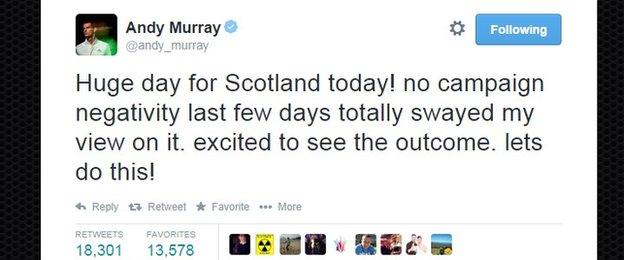
Andy Murray indicated he had been swayed by the negativity of the No campaign.
Ali and Joe Frazier - the greatest blood feud of them all. Some years ago, I spent time with Frazier. For more than two hours, he spoke about his life and his beliefs, his poverty-stricken upbringing and the bitterness and insecurities it instilled in him.
He talked about his time in the company of Ali and Malcolm X and Martin Luther King. It was painfully personal and jaw-droppingly honest.
That afternoon, I was back in the 1960s, when great sportsmen and sportswomen spoke this way. The stars were more interesting then.
Andy Murray has provided a bit of a throwback to boxing's golden era. Nobody is going to over-play the Ali-Murray comparison, but there is one thing that unites the pair of them. On the biggest issue of their lives, they spoke up.
Murray won't get flung out of tennis for going public with his support for independence - as Ali did in the heavyweight game when refusing the draft in protest against the Vietnam war - but he is reaping a whirlwind of sorts.
The Scot loves his boxing - the best guess is that he doesn't like Twitter so much at the moment - but it was via social media that he made his position clear on the referendum on Scotland's independence.
It's hard to know if Murray consulted his vast management team before declaring on the Yes side of the debate, but you have to doubt it. Had he done so, it's easy to imagine how that might have played out.
Commercially, it was a risky move. Sponsors of global sports stars don't like their clients to be political or controversial. They like them to be squeaky clean, no rough edges, a neat package of corporate loveliness.
Murray's team might have been horrified had he let them into his thinking. They might have pleaded with him to back away from his computer and think of the big picture as they see it - the image, the contracts, the money.
They might have pointed out the problems of the past, when he was construed to have declared his footballing allegiance to anyone but England. It was a joke that was taken seriously in his home from home and it dogged him for years.
His advisors might have jogged his memory. "Remember that, Andy? Remember how much of England rejected you for so long? Do you really want to go back to that again? Play it safe. Keep quiet. Nothing to be gained."
The impression is that Murray did not consult his business representatives before The Tweet. Also, it's inconceivable that Murray did not have a crystal clear view on what was going to happen next just as soon as he pressed the send button.
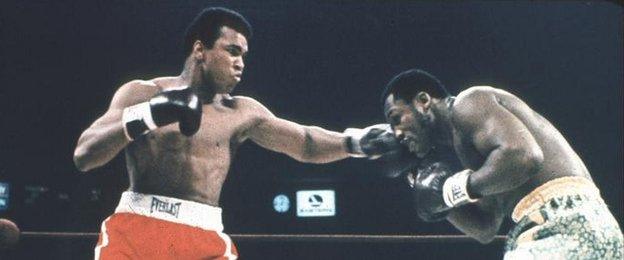
Boxers Muhammad Ali and Joe Frazier were sportsmen who spoke their minds.
And yet he did it. And it was a surprise. Given his public utterances up to now, it wasn't something that many close to his world saw coming.
"I wouldn't personally choose to make my feelings on something like that public because not a whole lot of good comes from it," he said in March.
"I don't know a whole lot about politics and I have made that mistake in the past and it's caused me a headache for seven or eight years of my life and a lot of abuse. So I wouldn't consider getting involved in something like that ever again."
And yet he has. Knowing the outrageous consequences, he sent The Tweet.
Anybody looking at this with a fair mind would be shocked and repulsed by the hatred that has been emptied on his head over the course of Thursday, like some kind of Ice Bucket Challenge for the terminally poisonous. Any semi-sane person - regardless of how they voted - would surely rise up in his defence against the cyber fanatics who abused him for having the temerity to voice his opinion.
We want sports people to voice their opinion. We want them to let us into their worlds, not the fantasy worlds sold to us by their people.
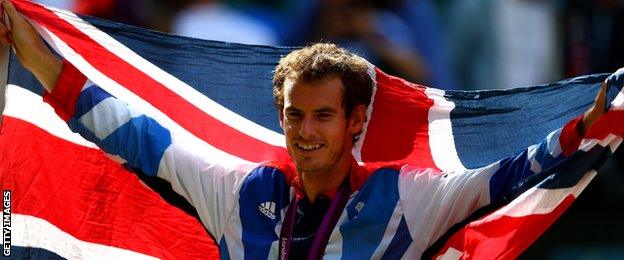
Andy Murray has competed for Great Britain at the Olympics and in Davis Cup
There has to be respect for Murray. Huge respect. Even if you don't agree with his stance then surely there has to be admiration - even if it's admiration of a grudging kind - for having the courage of his convictions despite knowing what he was opening himself up to.
Cyber hatred, for sure. A commercial backlash, very possibly. How will British tennis see him now? How will the Wimbledon crowds receive him? Has he permanently damaged the Murray brand? Does he care?
We live in a world where too many sportsmen and sportswomen are under the thumb of their management companies, too fond of their image to get involved publicly in things - particularly controversial things - that truly matter to them.
Murray has done exactly that and, in a small way, he is a throwback to an era where sporting greats had the moral courage to stand up and be counted on the great issues in their lives regardless of the consequences.
- Attribution
- Published18 September 2014
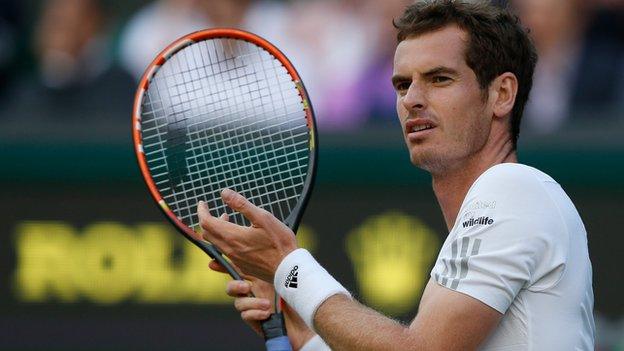
- Attribution
- Published18 September 2014

- Attribution
- Published19 September 2014
